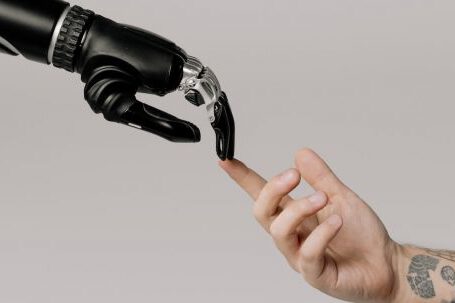In this rapidly advancing technological era, the integration of artificial intelligence (AI) into various industries has become a topic of great interest. One particular field that has been under scrutiny is software development. With the remarkable capabilities of AI systems, many have wondered whether they can eventually replace human software developers. In this article, we will explore the potential of AI in software development and discuss the advantages and limitations it presents.
The Rise of AI in Software Development
AI has made significant strides in recent years, showcasing its ability to perform complex tasks traditionally carried out by humans. In the field of software development, AI has proven to be a valuable tool in automating certain aspects of the process. Machine learning algorithms can analyze vast amounts of data and identify patterns, enabling AI systems to generate code and suggest improvements. This has led to increased efficiency and productivity in software development, as AI can quickly generate code snippets and automate repetitive tasks.
Advantages of AI in Software Development
One of the main advantages of AI in software development is its ability to accelerate the development process. With AI systems capable of generating code, developers can focus on higher-level tasks, such as architecture design and problem-solving. This not only saves time but also allows developers to work on more challenging and creative aspects of software development.
Additionally, AI can help improve the quality of software by detecting potential bugs and vulnerabilities. Through pattern recognition and analysis of code, AI systems can identify common errors and suggest fixes. This can greatly enhance the reliability and stability of software, reducing the need for extensive debugging and testing.
Moreover, AI can assist in code maintenance and optimization. By analyzing existing codebases, AI systems can identify areas for improvement and suggest optimizations. This can lead to more efficient and streamlined code, resulting in improved performance and reduced resource consumption.
Limitations of AI in Software Development
While AI has shown immense potential in software development, it is important to acknowledge its limitations. AI systems rely on existing data to generate code, which means their effectiveness is heavily influenced by the quality and diversity of the training data. If the training data is limited or biased, AI systems may produce suboptimal or incorrect code.
Furthermore, AI lacks the ability to fully comprehend user requirements and context. Software development often involves understanding complex business logic and user needs, which require a level of human intuition and empathy. AI systems may struggle to interpret these nuances, leading to potential misunderstandings and errors in the generated code.
The Role of Human Software Developers
Despite the advancements in AI, human software developers continue to play a crucial role in the software development process. Their expertise, creativity, and ability to understand complex requirements are irreplaceable. While AI systems can automate certain tasks and assist in code generation, they cannot fully replace the intuition and problem-solving skills of human developers.
Conclusion
In conclusion, while AI has made significant progress in software development, it is unlikely to completely replace human software developers. AI can undoubtedly enhance productivity, improve code quality, and automate certain aspects of the development process. However, the role of human developers remains essential in understanding complex requirements, designing architectures, and solving unique challenges. The future of software development lies in the collaboration between AI and human developers, leveraging the strengths of both to create innovative and efficient solutions.





